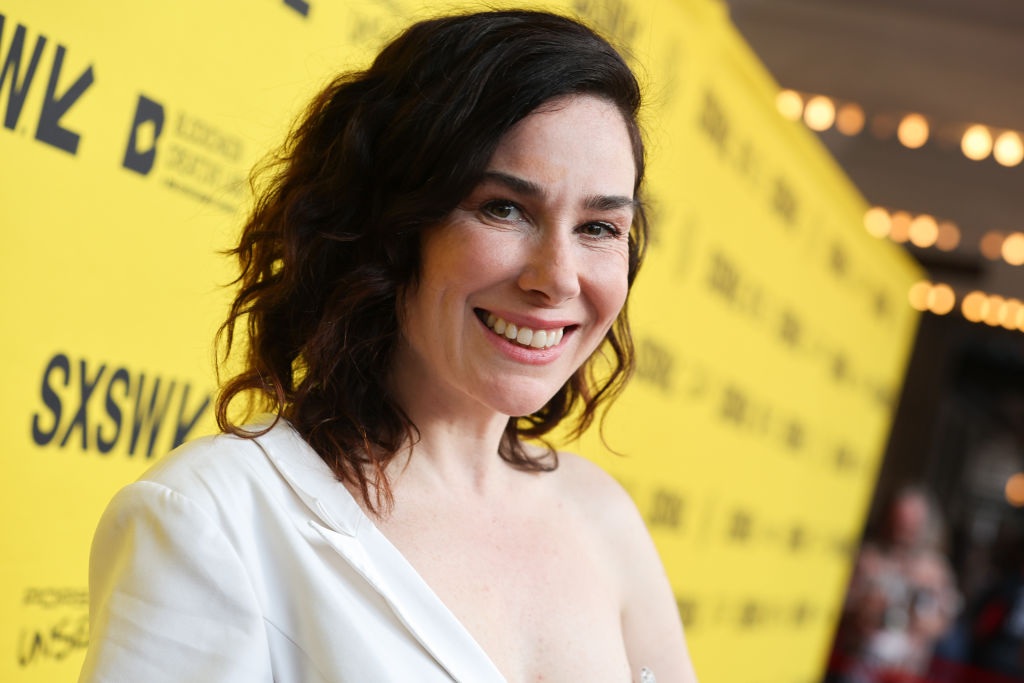
Halina Reijn is wearing a dress and has bare feet as I’m led into the swanky hotel room. She offers me a cookie (I decline) and for the next 20 minutes, we’re engrossed in a chat that covers everyone’s favourite contemporary movie studio A24, patriarchy, horror films and the very nature of acting. Reijn tells us, candidly, how Bodies Bodies Bodies came to be.
How did you get involved? Did you go to the script or did the script come to you?
I made my first film, Instinct, which is a sexual thriller. A24 saw that and we started a conversation. I was in awe of this studio that somehow found a way to make quality films, but bring them to a big audience. I was very intrigued by them. They gave me the script. And I was like, No, I don’t make films that are other people’s ideas.
The game at the heart of it, I used to play that with my friends all the time, because it’s so sexy and seductive. So I thought, what better premise than to talk about poor behaviour and pressure within a group and, and then I pitched a new version, really, of the film to them, which is like Mean Girls meet meets Lord of the Flies, and the film is more about human nature than it is about a scary ghost or killer.
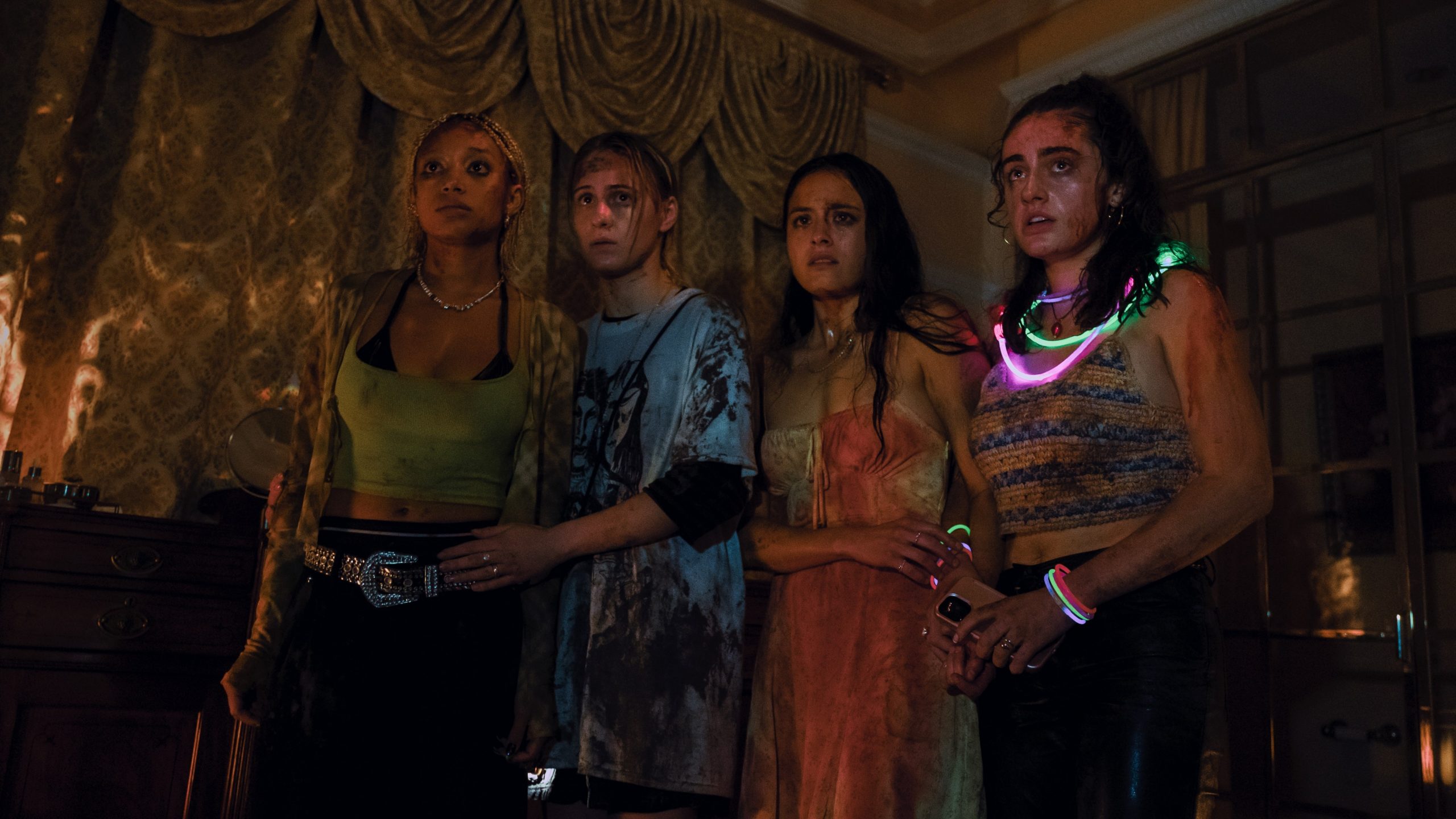
Credit: Sony Pictures Releasing
And you mentioned A24. Did that come with a pressure to make a certain type of film, visually or thematically?
I think genre is amazing. I was afraid of it, but because I knew A24 were involved, they’re gonna give me the freedom to do it my way. Because people who know my career, know that I love darkness and everything I’m ashamed of, and I want everything to be sexual even though it’s not literally sex. I want to always have that sensuality and I also really love acting. So to create an organic, believable acting style is my main goal. A24 gave me the confidence that I could do all of those things.
And because you’re from the Netherlands, did that feel like you can come to the world of the film as an outsider, looking in?
I do think it’s an advantage, but it was also intimidating. My partner always says that I’m like a sponge. I love information.
I also think that the feeling of the fear of not belonging, the fear of being excluded, the fear of not being beautiful enough, not being rich enough is universal. Is the beast inside ourselves or outside of us?
How does being an actress shape you as a director?
It really helps me to create a safe environment, not only physically, because in America, that is very well taken care of, but also mentally. I think a lot of actors, including myself, when the camera’s on you, it’s your close-up and 90 people are staring at you, there’s so much pressure. It’s very different from theatre where you’re like, oh, there’s always tomorrow and it’s a live performance and it just dies.
In a lot of films, you see that the acting is not believable, it’s not organic, it’s not dangerous. And so for them to feel at ease, I do very long takes. I never shout on set, I always direct whispering. [Acting] is a very embarrassing profession, even if you’re doing a comedy, everybody expects you to be funny, it’s just fucking scary. You have to bear your soul and your body and everything.
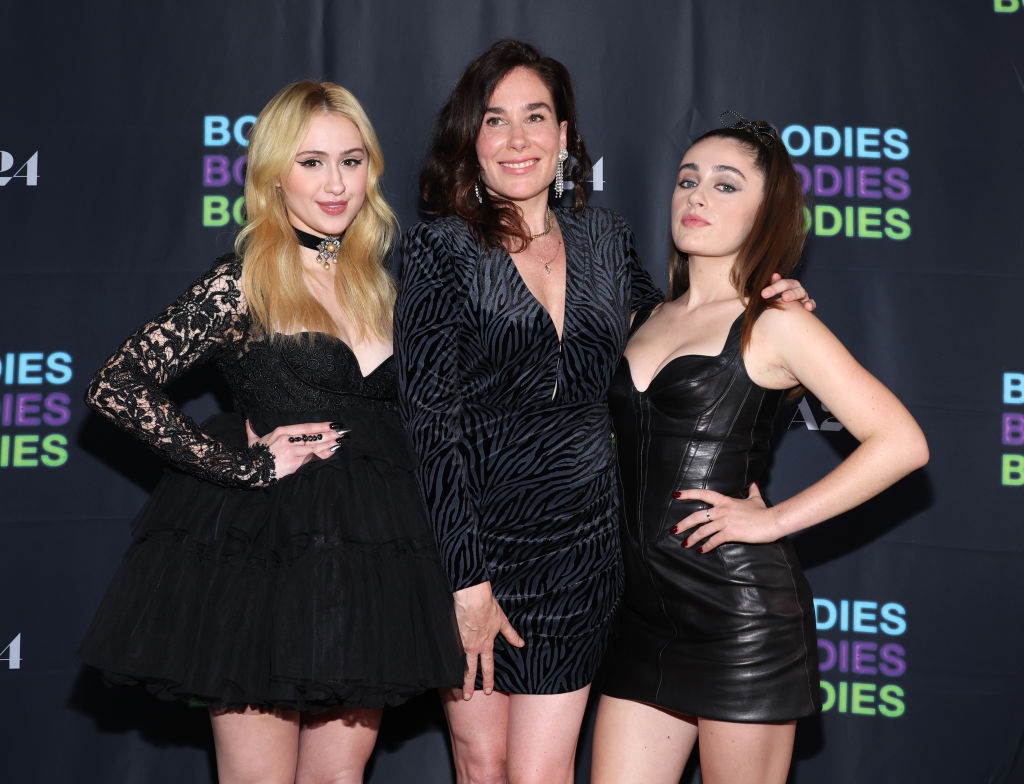
Maria Bakalova, Halina Reijn and Rachel Sennott at a screening of Bodies Bodies Bodies in New York. Credit: Cindy Ord/Getty Images
Does that ever kind of become almost like a mother-daughter relationship? Because they’re quite young, this cast.
Oh, yes, in this case, very much. You sort of fall in love with all of them as your children and me not having any, that big hole in my soul was fulfilled. It’s a very intimate process. Transitioning [to directing] has two sides. Because I often think, I’m going to do so differently, I’ve been in that position, and I’m going to direct this whole set in a different way. But it’s also very humbling, because you realise, this is what all the people behind the screen had to deal with.
You mentioned your film Instinct, which is, like you said, very different. Why a horror film? Do you love horror?
I am very frightened of it. I don’t necessarily like to watch it. What I love about horror, like Midsommar or Heathers – those are all films that are so inspirational to me – or Cries and Whispers and (Ingmar) Bergman even, is that it reminds me of the theatre, because the violence is very extreme. And that is, of course, very theatrical.
But I think why I decided to climb on board this ship is mainly A24 telling me that I would have freedom. All my references, all my education, everything is from the theatre. So it will create a different kind of genre. Personally, I feel like we made something playful and unique and authentic. I’m very proud of that.
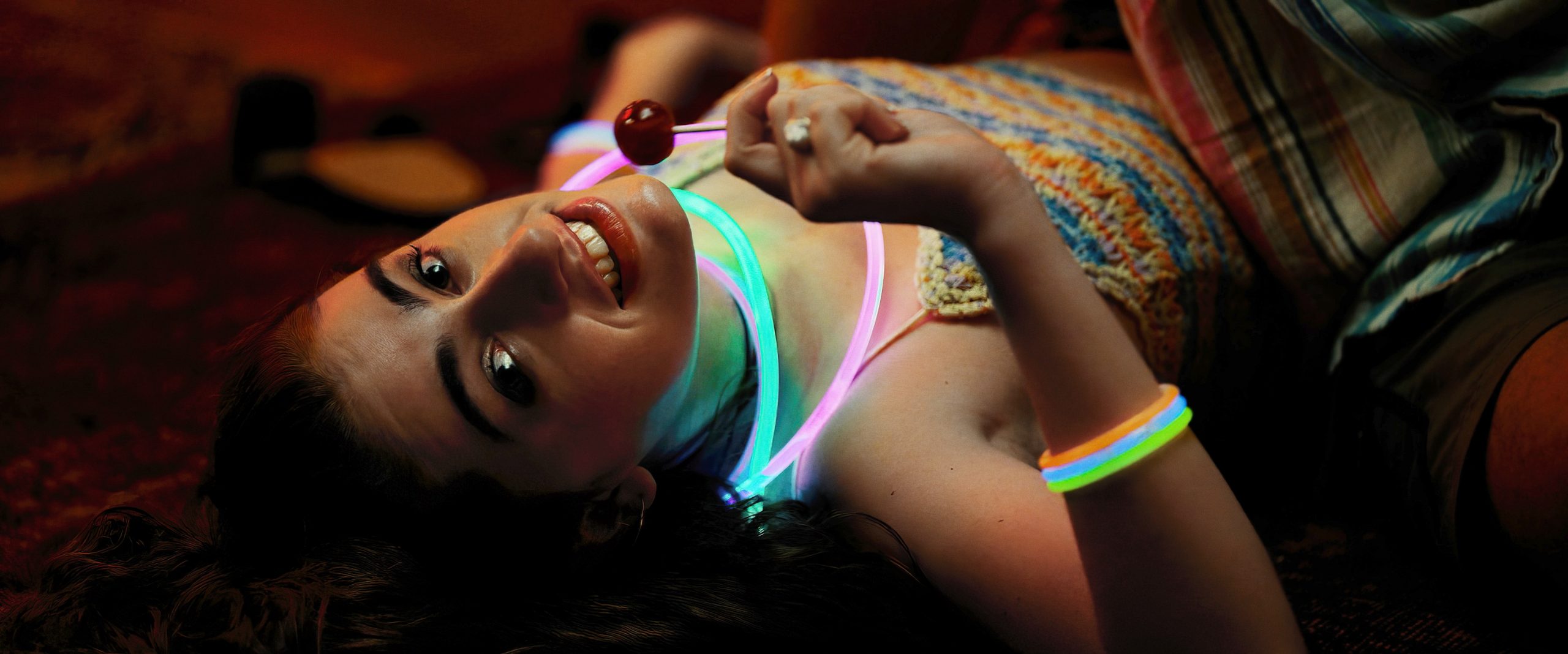
Is that why the spectacle of violence is the right lens to explore class, gender and sexuality as well?
This is a commercial roller coaster, it’s not a pretentious arthouse film at all, but the themes that we’re trying to address are pretty complex. And I do think that you’re right, that genre is just a great tool to address these things. It’s a little bit like a Trojan horse, right? The story you’ve seen 1000s of times, but what can make it interesting is adding contemporary themes to it. And of course, [the film] is about cancel culture, it’s about our complex relationships with our smartphones, and technology in general. The Wi-Fi is cut out and then at that point, the horror starts.
The film starts with quite an extreme close up of a French kiss. Did you want it to be a little provocative?
Yes, that’s part of the design of the film. To me, the whole film is about am I a beast or am I civilised? In an opening image of a film, you want to grab the audience and make them a little awkward or seduce them, but at the same time, the image should be a metaphor for the whole film. It’s Eve & Eve in paradise, its nature at its best, the birds are chirping, they’re in love, and they’re kissing in this very real way. But then, only a couple of hours later, the same nature has destroyed everything and taken over, it’s a hurricane and everybody’s dead.
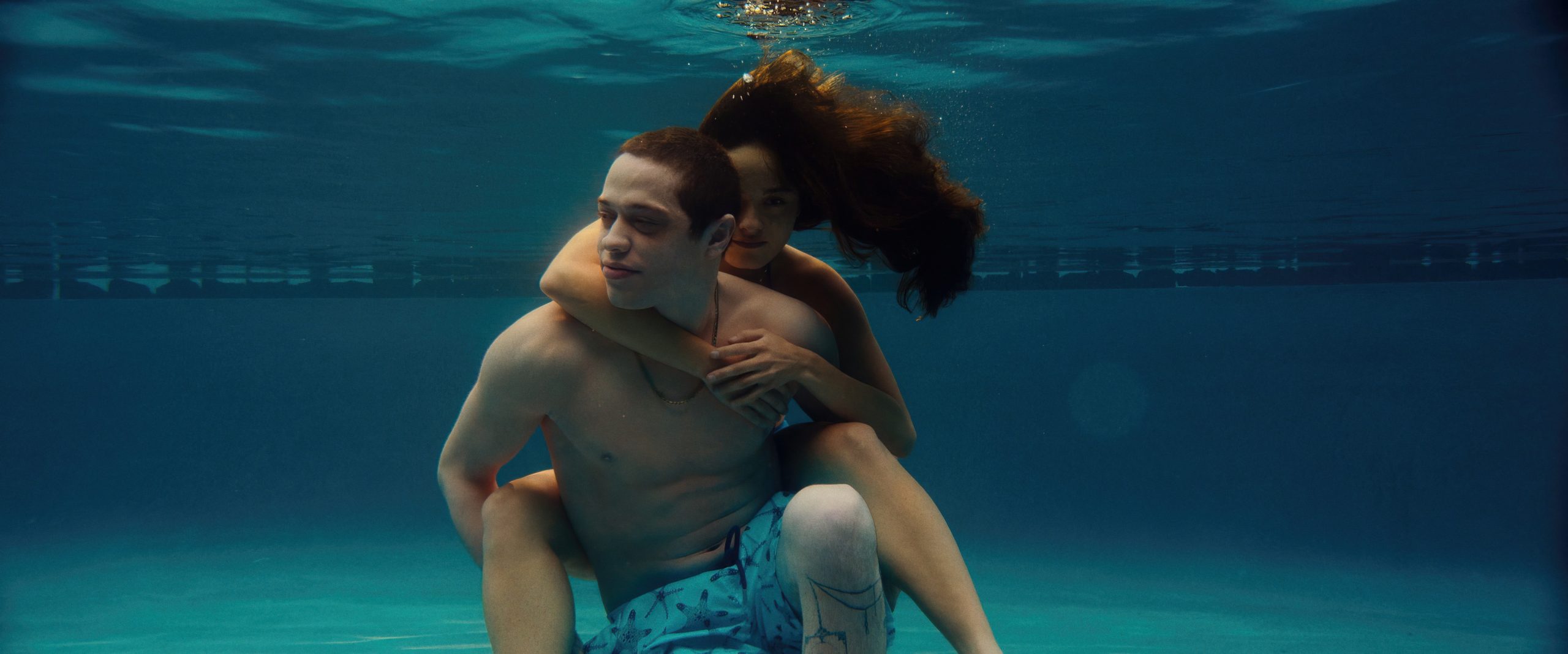
Credit: Sony Pictures Releasing
Horror has always been female, but we’re still talking quite a lot about how many female directors we’ve had, especially in genre films. I hate having to ask about it, because we shouldn’t be talking about it anymore, but do you feel like you’re part of a movement?
Oh, yes and I agree with you. Let’s hope that there will be a time when we don’t, but we do have to talk about it still and I do feel I’m part of a movement, because we only just started to explore ourselves. We’re still conditioned by patriarchy, so anything we’re creating is still also through that male lens. It’s such an interesting time.
And not just [for] white women, but also Black women and queer women and trans women, everybody else, but the straight white man. And they should continue to make their stories too, of course, they’re really important, but we should get a little bit more space where we can actually come to a moment where we might find out who you are, because our sexuality, our ambitions, it’s all still conditioned by patriarchy.
Bodies Bodies Bodies is in cinemas now.



